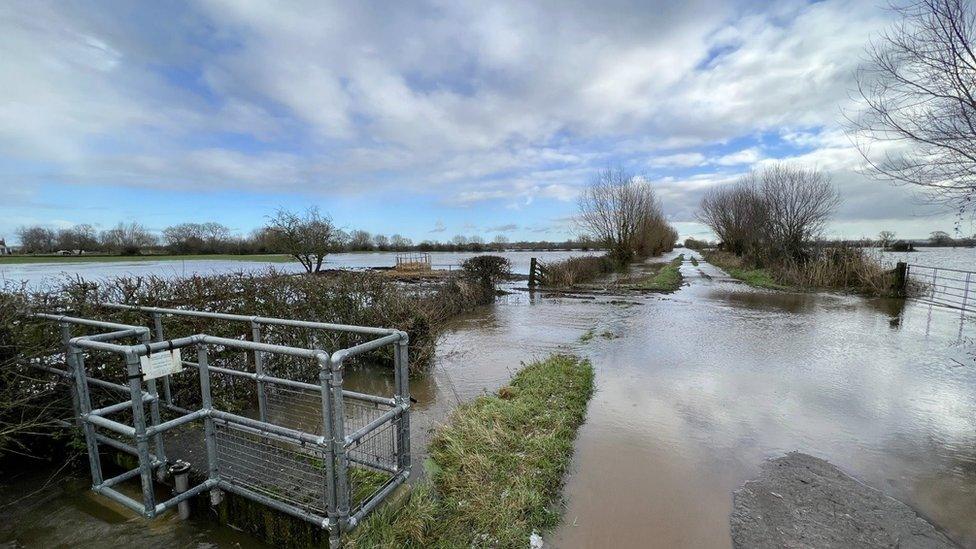Somerset river re-routed back to its original floodplain
- Published
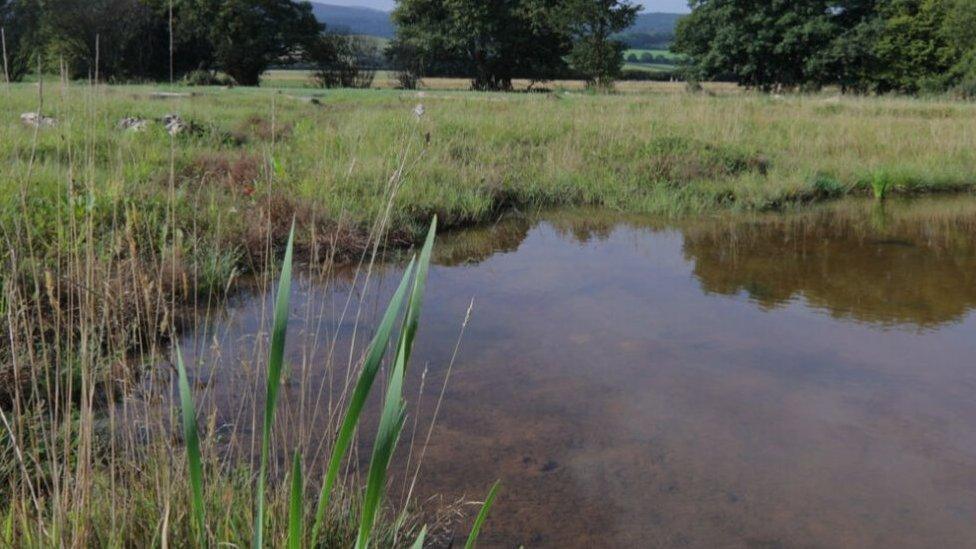
Ponds are starting to form in the new waterscape
A river has been reconnected to its original floodplain to help mitigate the impact of climate change.
The river reset has allowed the Aller on Exmoor in Somerset to find its natural course, project managers said.
The scheme should help reduce flooding by slowing the flow of water, while improving habitats for wildlife.
A new landscape has been created by diverting the river 1.2km (0.74 miles) from its previous man-made channel.
This was the first time a river reset had been attempted on a main river of this scale in the UK.
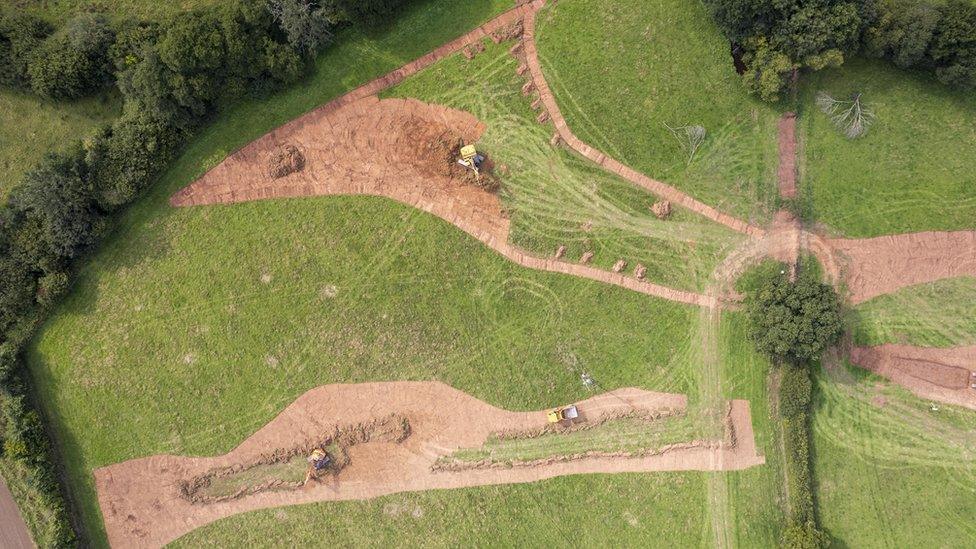
The reset has allowed the river to find its natural course
Additional trees and scrub should create shade and wetter soils and help create a cooler microclimate in the restored area.
Project manager for the National Trust, Ben Eardley, said: "We now have a tried and tested method to start reversing the damage done to our rivers."
Mr Eardley said the project would completely reset natural processes.
"It's like the equivalent of a computer reset and lets the river decide what it wants to be," he added.
"By seeing the river and its surrounding landscapes as a whole, we can build resilience and boost biodiversit," he said.
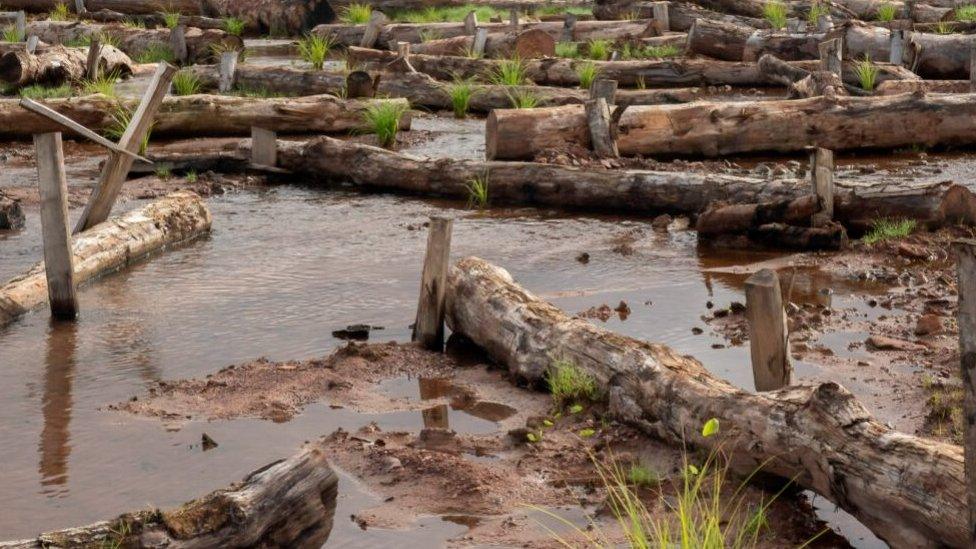
Grass is beginning to grow back along the rerouted River Aller
The river no longer runs along a single channel but forms part of a complex waterscape with channels, pools, wetland and marshes.
Dr Stewart Clarke, National Trust specialist in freshwater, catchments and estuaries, said: "We are creating the best possible conditions we can for the river to adapt and respond to whatever comes its way in the face of more severe and regular floods and droughts predicted with climate change."
The National Trust said this was an important project for trialling new techniques to help tackle the nature and climate crisis.

Follow BBC West on Facebook, external, Twitter, external and Instagram, external. Send your story ideas to: bristol@bbc.co.uk
Related topics
- Published5 August 2023

- Published11 May 2023
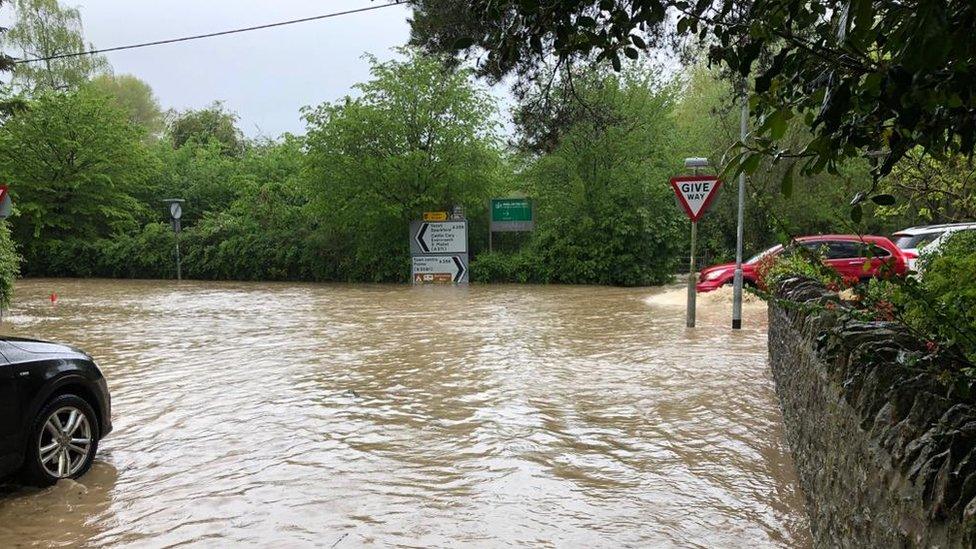
- Published19 January 2023
